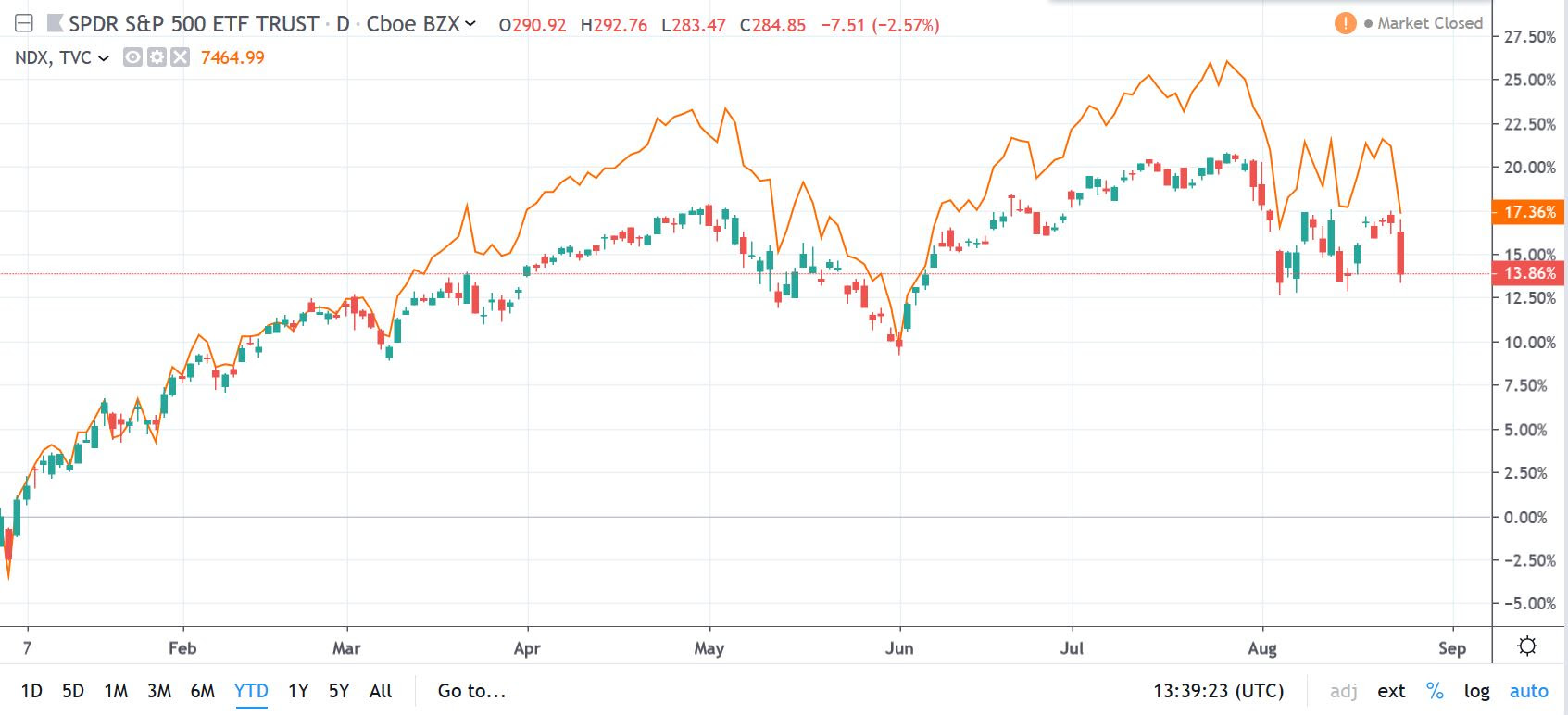Stock market volatility has been picking up in August – on display with Friday when the S&P 500 fell 2.5%. Today I am going to explain why stocks are getting more volatile, what I expect in the next 12 months and how my clients can adjust their portfolios to better manage.
US stocks are having a very good year.
- The S&P 500 (SPY) is up 14% in 2019.
- The NASDAQ 100 (QQQ) is up 17% in 2019.
US and China Trade Relations: the trade battle between the US and China has been heating up and that’s creating some uncertainty about global trade and economic growth. If this gets solved it would be give socks a nice boost. But at this point the Street is starting to recognize that this trade battle could drag on for years.
Recession Threat: Investors are also nervous about the threat of a recession. Recessions are a natural part of the business cycle. And as I’ve written before, a recession doesn’t mean stocks will crash. Here’s a link to some research on recession’s and stock performance.
Recession in 2020? Here’s How Stocks Perform
The 2020 US Presidential Election: Investors are also nervous about the 2020 presidential election will weigh on stocks. After some doing some quick research, those fears may be unfounded. Taking a look at the last 100 years, US stocks have typically performed well during election years.
Stock Market Performance During Presidential Election Years
However – I am expecting to see volatility increase in the next 12 months.
Here is my advice for how to navigate the next 12-15 months as the economy and stocks work through these head winds.
Young Investors: Young investors should focus on the long-term opportunity and try not to worry about short-term volatility. If you are nervous about the next 12 months, a great way to get more defensive is to sell stocks and use that cash to buy bonds. Bonds offer more stability than stocks and are good for capital preservation instead of growth.
Older or Retired Investors: This is a good chance to look at your mix of stocks and bonds. If stock volatility is making you nervous, increase your allocation to bonds.
The Big Picture on the Next 12 Months
Market volatility is picking up. I am expecting more of the same in the next 12 months because of US, China trade relations, a potential recession and the 2020 US presidential election. If you’re nervous about weakness in stocks, think about increasing allocations to bonds. Bonds are good for stability and capital preservation.
Disclaimer: This report is for entertainment purposes only. Every investor should consult with an investment advisor before making investment decisions. The Vodicka Group, Inc. is not a broker/dealer. We do not receive compensation for mentioning stocks. At various times, the clients, publishers and employees of Vodicka Group, Inc., may buy or sell the securities discussed for purposes of investment or trading.




